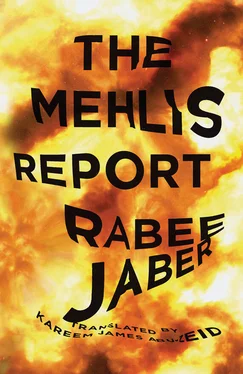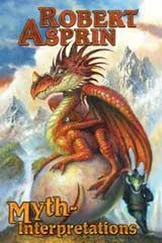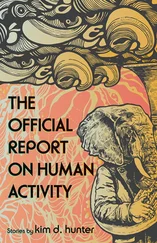He looked at the moon towering over the roofs of the city, higher than Beirut’s towers and the webs of crisscrossing wires. He looked at the moon and felt as if he were swimming in white, swimming lightly. He thought it must mean something. This clarity. This tranquility. The noise that came from beyond the house, from the direction of Monot Street, was loud, and wasn’t. As if this diaphanous light were blocking out the noise. Saman Yarid didn’t notice he was dozing off. Drowsiness and beer, and the weariness of a long day. He dozed as the sounds faded in the distance. The air rustled through the lush leaves of the oak tree. He leaned back his head, resting it on the smooth cushion of the sofa. He fell asleep.
When the explosion went off his body convulsed; the roar and the shattering glass terrified him. He opened his eyes in horror. He didn’t understand what was happening. The fear sent blood thundering through the veins of his neck. His hair stood on end. What’s happening? Where am I? What’s going on?
He wanted to go inside and turn on the TV. It would only be a few moments until he heard the news, saw the images, and learned what had happened. He wanted to get up from the sofa. But his gaze fell on the white disc at the edge of the oak tree.
The oak was a black planet hanging above his head. And at the edge of the black planet, that strange yellow face appeared: Was this the moon? It wasn’t the same one he’d been looking at when he fell asleep an hour ago.
He meets Yara at a Chinese restaurant on Foch Street. She’s wearing blue pants and a white blouse with a soft frill on the collar and shoulders. Her dark neck is gleaming, and a silver chain adds to the effect. Her black hair is tied up, and her eyes are radiant. She always calls him whenever she’s about to leave the country, and they always meet at a restaurant. He loves these encounters. She meets him whenever she’s full of life, and some of that incredible energy seems to rub off on him as well. Her mood is never as good as when she’s preparing to take a trip. Her whole being changes, she becomes more talkative, and her pupils shine. Her skin is smooth, lustrous. At the beach, whenever she’s rubbing sunscreen onto her body, he never fails to stare at her stomach. A firm, tan circle of tight flesh quivering beneath her fingers as she rubs in the oil. He’ll never forget the first time he saw her putting on sunscreen.
She orders veal with bok choy, garlic, sweet basil, sesame oil, and soy sauce; and noodles to go with it.
He orders stir-fried chicken with bamboo shoots, green onions, ginger, red chilies, cashews, and soy sauce; and a side order of rice, steamed.
“Are you still afraid of Mad Cow Disease?” she asks him.
“Do you still hate soup?” he answers.
Yara can’t stand soup. She never orders it when she’s with him, and eating it alone would make him uncomfortable. She says she loves soup but hates going to the bathroom. And tofu upsets her stomach.
“We wouldn’t want to upset your stomach.”
They exchange news, and she asks about some of their mutual friends. He tells her Gérard is thinking of moving to Montreal: he hasn’t decided yet, but he’ll probably leave.
“Shame on Gérard,” she says.
He can’t understand why she says this, but he’s not interested, and doesn’t ask her about it. He doesn’t know why he mentioned Gérard at all. He seems tired today. He tells her his ear is hurting, and rubs his ear. She asks why, does he have a cold?
The waiter arrives, balancing the tray. Smells fill the air while colors fill the eyes. The seared half-ripe greens sizzle. The whole-grain rice is white as snow. She asks about his ear again.
“The phone calls,” he replies. He says pressing his ear against the receiver is one of his bad habits.
“You don’t have bad habits,” she laughs, picking up the chopsticks.
Her laughter delights him. It’s just a short laugh, but a trace of it remains in the air: a scent, a light undulation at once perceptible and imperceptible. He notices that customers at other tables keep turning to look at them, time and again, and he knows she knows this.
She asks about his work, and he says it’s the same as always. He takes his chopsticks out of their paper wrapper. He looks outside — at people passing beyond the window — then looks at her and says he’s had nothing but long and exhausting phone calls since the morning.
Emily called after Mary. Emily only ever rarely calls him at the office. She rarely speaks with him at all. Emails are the medium of their relationship, their intimacy. Perhaps it was email that had made them so close — they only really started communicating after she left for Paris. Emily loves to write. And after she went abroad, her relationship with her brother grew stronger.
Yara says the meat’s delicious, it doesn’t taste like meat at all. She looks up at him, her eyes wide as she deliberately chews and swallows. Then she sighs like a contented child.
He asks if her trip will be a long one.
“Why do you ask?” She laughs as she lifts the noodles to her mouth with the chopsticks. She’s great with chopsticks, he thinks to himself. He hears a light whistle of air between her lips.
She says she has five days of work there, but she’s taking five days of vacation on top of that, and if she can she’ll take more, she’s not in a hurry to come back with things like they are, and if she could she wouldn’t return until well after the Mehlis Report is released — she has a feeling there won’t be much to celebrate after the report.
He has the feeling she’s saying something he’s heard or read somewhere before.
“How do they make noodles?” she asks.
“They boil them. Then they set them out to dry on towels. Then they fry them quickly in a little oil.”
“No, I mean how do they make the strings in the first place? What’s the difference between noodles and pasta?”
He says he usually only orders rice.
She laughs. There’s that laugh again. When she laughs he knows that if she’d agree to be with him, to be only with him forever, if she’d agree to that, then he’d. He’d what? He doesn’t complete the thought: he doesn’t like making plans.
She says she doesn’t believe the report will tell why exactly the crime occurred. It won’t say who planned and carried it out either, or who was implicated in concealing the evidence and obstructing the investigation. True, it might talk about how the crime occurred and whether the explosive device was planted on the ground or under it, but it won’t mention the perpetrators, not all of them, not clearly, and it won’t accuse the top brass. How could it accuse them? Such a thing could lead to war. At most it will say where the rigged van was located and how it was detonated and stuff like that. And if it says anything else, it won’t say so clearly.
The smell of sesame oil. She takes a roasted cashew from his plate. She picks it up with her chopsticks, looks at him, says “May I?” and then eats it. Her smooth cheeks. He looks at her, unable to get enough of the sight.
She tells him that scientists have discovered that people who lie a lot do so for biological reasons. Above a person’s eyes, inside their skull, there are two types of matter: gray and white. It’s part of the brain, and all of us have these two types of matter in our brains. But if the white matter is denser than the gray, you lie a lot. White matter helps people lie. They tell lies, but when you look at them you’d never for a moment imagine they’re lying to you. That’s because of the white matter in their skulls. If they had more gray matter, you’d see through the lies immediately. Their faces would give them away — by laughing, or by looking away. The scientists who discovered this might win the Nobel for medicine.
Читать дальше












